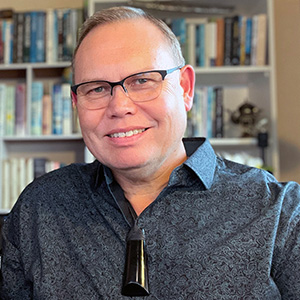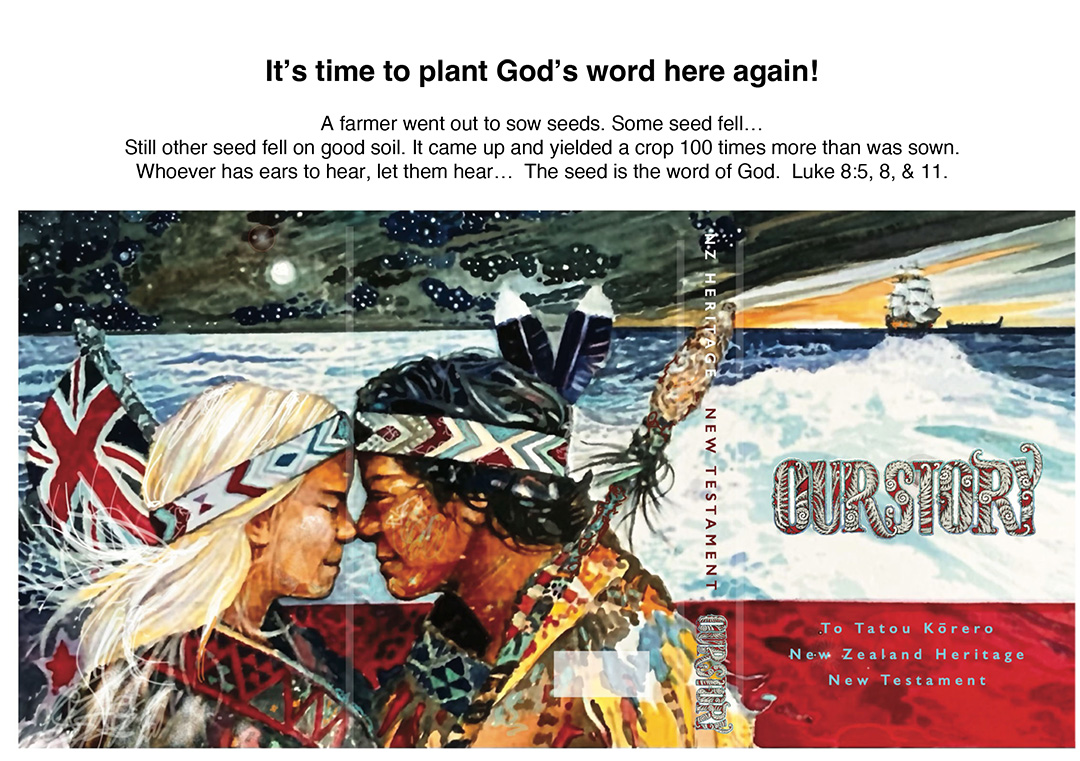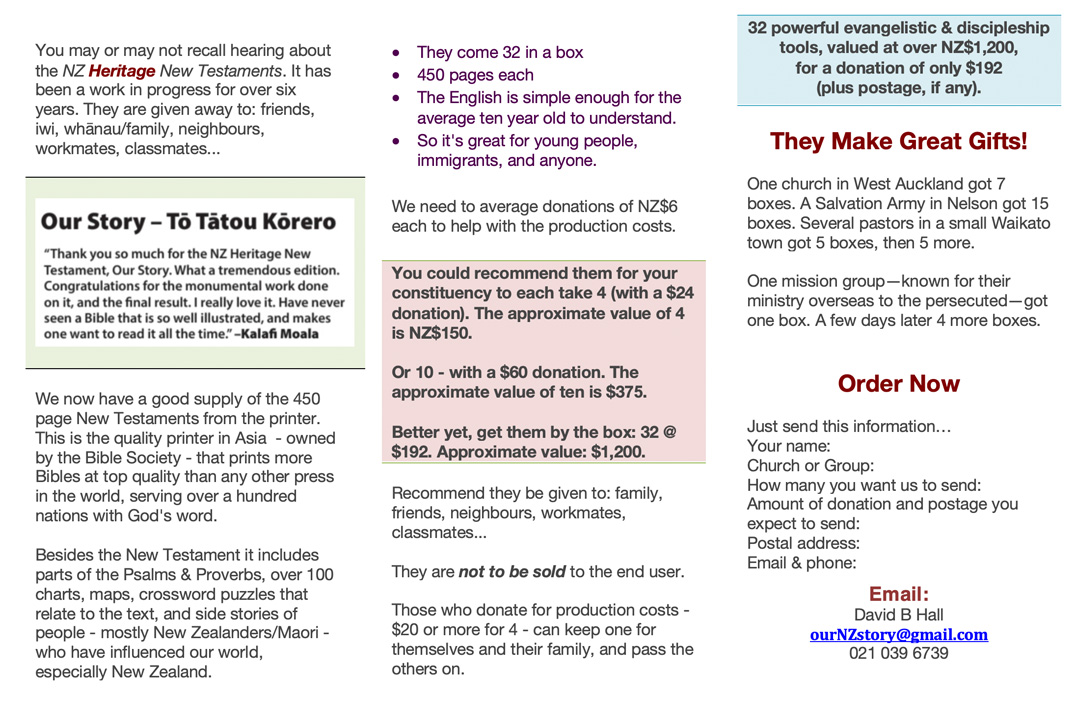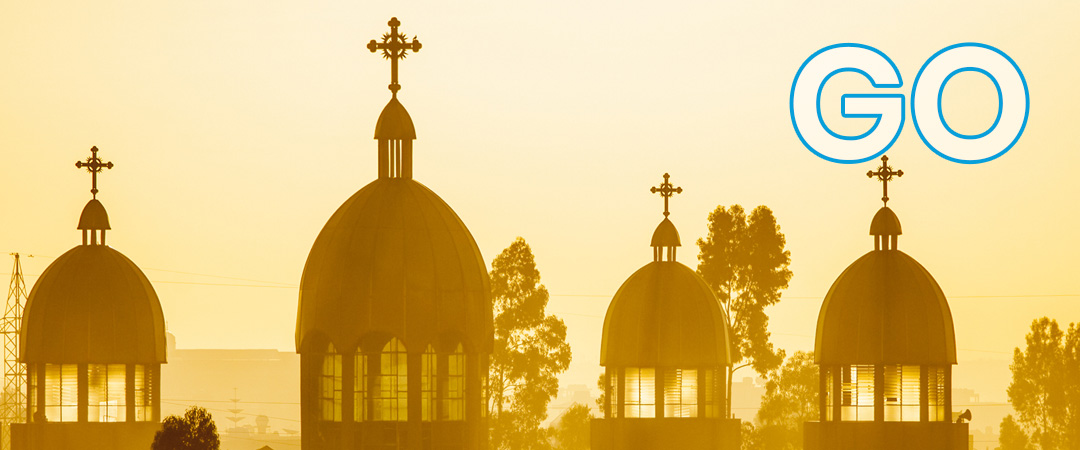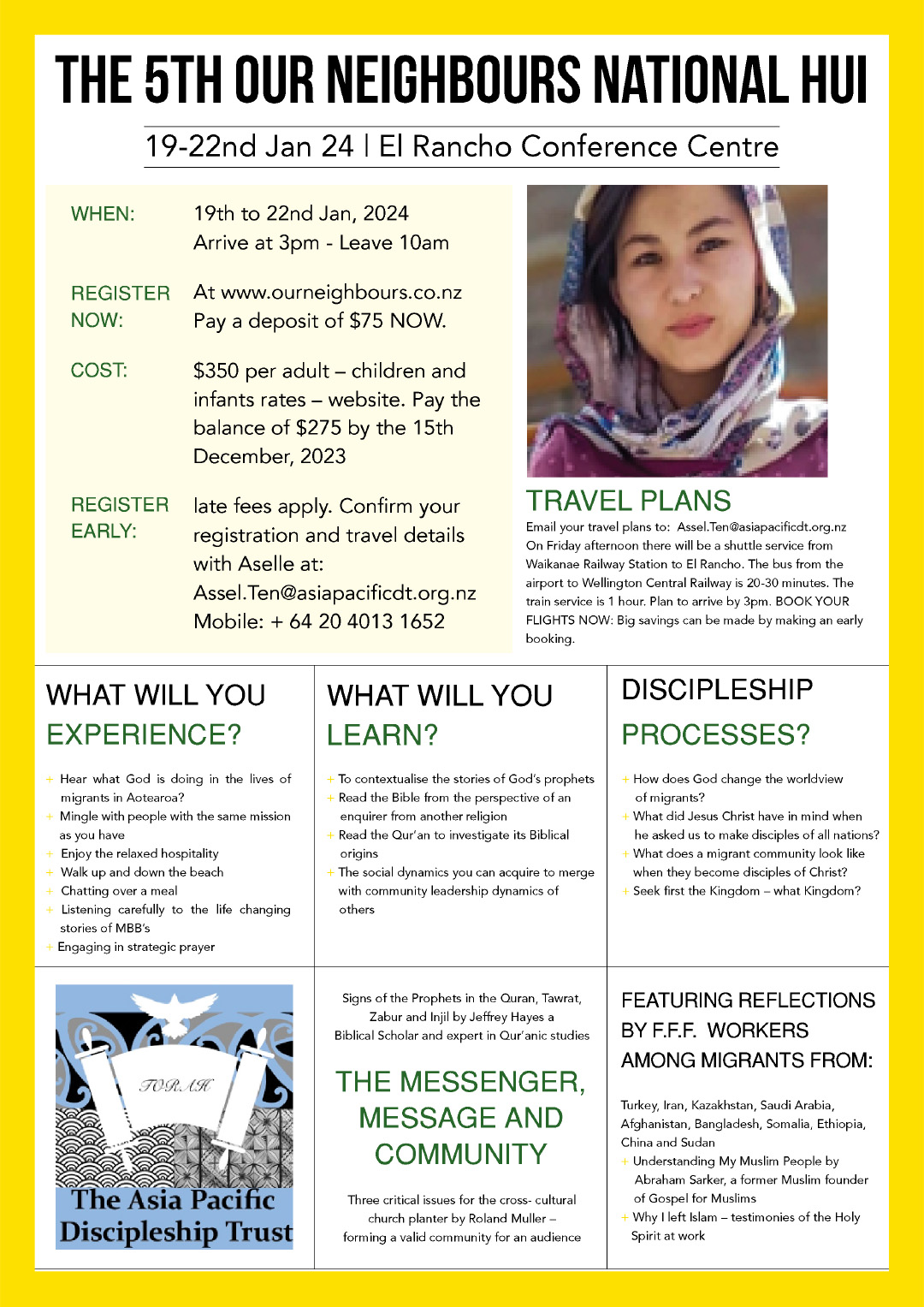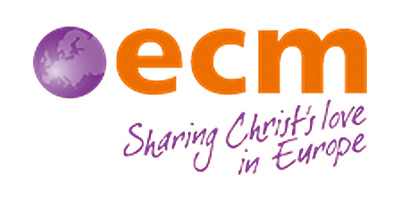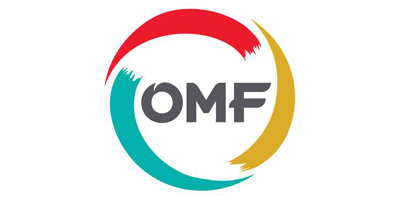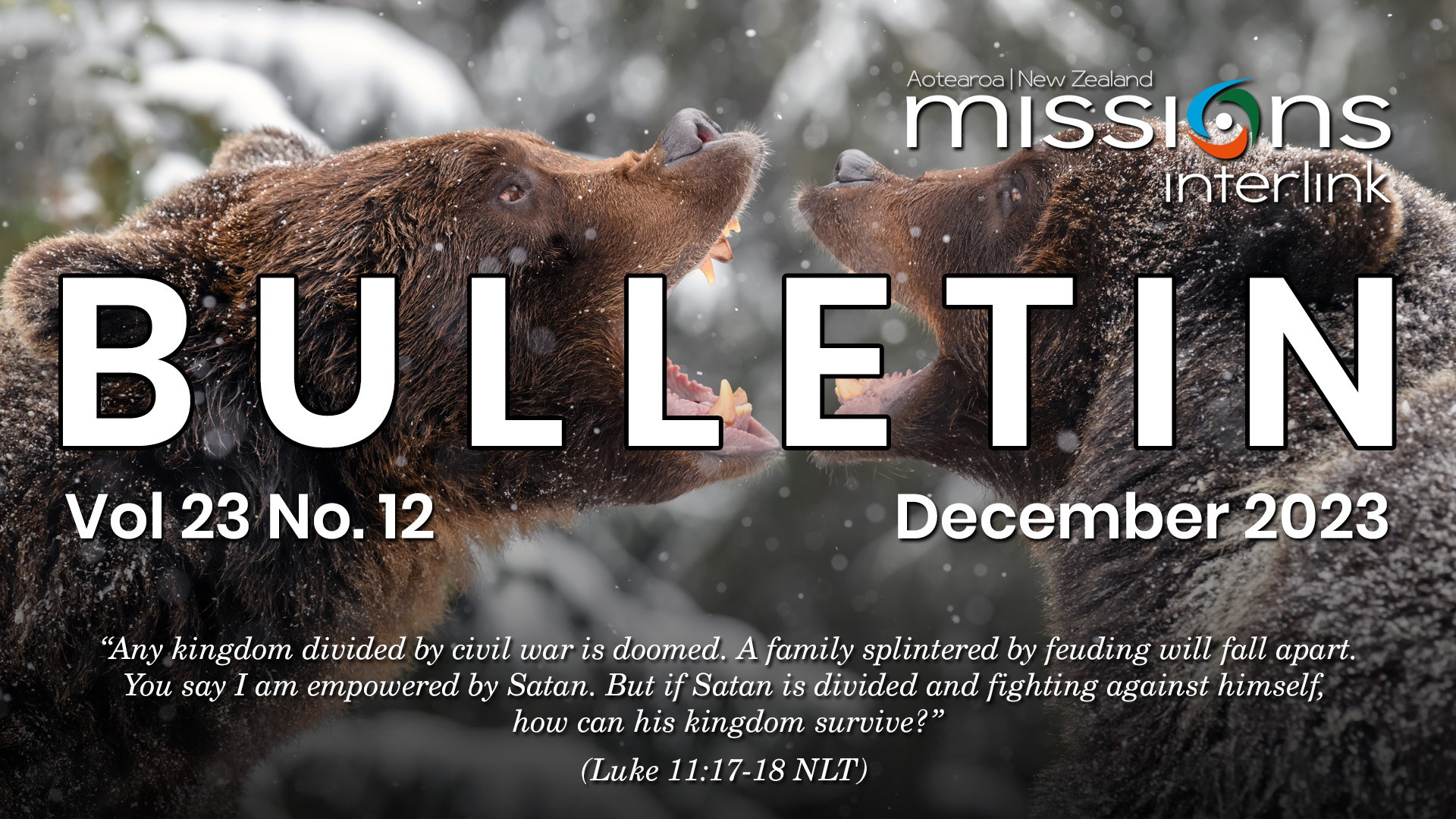
QUICK MENU
EDITORIAL
- Good News
EQUIP
- How Far Is Too Far
- Relativism & Syncretism
GO
- Responding To Global Church Growth
CARE
- Cultivate Calm
PRAY
- Eastwest, ECM FEBC, ISVNZ, MINZ, OMF, WEC, WBT.
SPOTS
- Latest News. Events & Opportunities

EDITORIAL
GOOD NEWS
By Dr Jay Matenga
Jay is the Executive Officer of Missions Interlink, Director of Global Witness for the World Evangelical Alliance, and Executive Director of WEA’s Mission Commission. Jay writes and speaks on missions related subjects globally. His blogs, articles, and other public contributions are made available for free on jaymatenga.com
After seven years of drawing contemporary missional meaning and social commentary from whakataukī (Māori proverbs), this issue concludes the theme. The next editorial will begin with a passage of Scripture as the starting point for commentary that seeks to strengthen our participation in God’s mission—while continuing to do so through an indigenous lens. For this final contribution, however, the whakataukī is, “He aroha te whakapiri, he mate i te whakatakariri” [Love unites, but anger separates].
“For a branch cannot produce fruit if it is severed from the vine” John 15:4 (NLT). John amplifies this concept in his first epistle (1 John 2:18-19) where he discusses the reality of the Antichrist and antichrists. Curiously, these are not people who are persecuting the Church. In John’s understanding, antichrists are those who have left the vine, become separate from the family of God. Presumably because they had “a craving for physical pleasure, a craving for everything we see, and pride in our achievements and possessions” (1 John 2:16 NLT) rather than the eternal purposes of God. But they remain a negative influence on God’s people, as false prophets (1 John 4:3b NLT). Such people are cast as liars who deny/renounce the Father and the Son and thereby have become antichrists (1 John 2:22 NLT). They have become unfaithful to the holy fellowship of believers through their desires, words, and actions. They act in the spirit of the Antichrist and “you can identify them by their fruit, that is, by the way they act” (Matthew 7:16 NLT). And Jesus said that way is ultimately the way of death.
In a Māori cosmovision (view of reality), separation equals death, unity generates life. Anger and disagreement are not automatically grouped with the former, but if they are prolonged and turn bitter, with a refusal to accept or be satisfied with appropriate reconciliation, they have great potential to be destructive. Handled well, they can lead to communal transformation—to life. The spirit of the Antichrist does not seek life. That is God’s purpose. Forces that oppose God, that accuse the people of God, that steal, kill, and destroy, seek only destruction. But even this resistance to life is a strengthener of life. That is the great mystery of opposition, hardship, and suffering. But it must be processed adequately, toward wellbeing and away from toxicity.
I firmly believe there is a spirit at work in the world today that is deeply destructive. It is a spirit that promotes wedges that divide, driving us further and further apart from one another over issues that barely 5 years ago might have been dismissed as the stuff of social banter. We are being herded into tribal camps, based on opinions that now feel like they are life or death options—existential non-negotiables. It seems that tolerance is a convenience we can no longer afford. It is happening between nations, within nations between those with differing socio-political convictions, between family members, and theologically within the people of God in Christ. As Fritz Breithaupt explains in his book The Dark Sides of Empathy, much of the horror in this world is not because of the lack of empathy but because of the intensity of empathy, usually for the group with which we identify. The problem, with social empathy at least, is an extreme identification with a particular tribal creed over against all others. It is an in-group empathy that is more often than not conditioned by a repulsion for a particular out-group who we grow to hate. We are too easily drawn into a very black and white, binary, simplistic bias that refuses to appreciate the complexity of situations and rejects opportunities to work toward understanding. They are the enemy, we have a righteous cause, end of story. Us versus them becomes the basis for identity, the reason for one’s very existence.
One of the interesting things about the nature of political empathies is that, whether left or right, as they become more extreme, they each arc in a horseshoe effect toward a similar conclusion: total control. These days it can be difficult to work out what is a politically right agenda item and what is left. It used to be that the right (individualistic) wanted more personal responsibility and free market for individual gain, whereas the left (collectivist) wanted more state control and regulation for the good of the whole. Relatively simple. As we can see in the recent elections in Aotearoa New Zealand, it is not nearly so straight forward today. Identity issues have entered the mix. The left now looks more libertarian and the right more conservative when it comes to personal politics. So, the left is much more individualistic, and the right somewhat more collectivist. Yet, taken to their extremes, both ultimately want to control society according to their agenda, the goals informed by their particular values.
As I write, protests are frustrating commuter traffic in major centres around our nation in response to a political shift that threatens to dishonour the dignity and wellbeing of a significant sector of society and diminish the importance of our central founding document, Te Tiriti o Waitangi (the Treaty of Waitangi). Without resistance, power in any form of relationship leads to unhealthy control that is more likely to benefit some at the expense of others. Such power rarely has everyone’s wellbeing in mind nor a balanced view of the common good. The antidote to excessive control is resistance toward a renegotiated social contract or relational agreement, and peaceful protest is a legitimate part of such a process. Only within wisely tuned tension between opposing positions can a healthy way forward be found for the benefit of all. That requires a willingness to invest time to seek understanding, build trust, and find agreement on shared values that can co-create a more positive future for all. This is what the Bible calls reconciliation.
In 2 Corinthians 5, Paul describes our participation in the mission of God as a ministry of reconciliation. He says that we may long for our transformed bodies, but it is what we do in the meantime, in our earthly bodies that will be a source of judgement before Christ. His own ministry defence aside, he notes some attributes that are required to conduct a ministry of reconciliation effectively.
- We are only to be controlled by the love of Christ (not the love of an ideology, dogma, tribe, ethnicity or even doctrine).
- Our former allegiances are considered dead (along with anything else that destroys relationships).
- Life together is only found in following the way of Christ (marked by the character of Christ/fruit of the Spirit).
- We have ceased evaluating and judging anyone from a human point of view (whether in or outside our faith).
These are the basic prerequisites of a biblical understanding of reconciliation, necessary for the process of relationship building (which includes legitimate disagreement, protest, resistance) to take place in a way that leads to unity in diversity. This is the process of co-creating New Creation. Theologian Tom Wright interprets 2 Cor 5:17 to mean that, for everyone ‘in Christ’, New Creation (aka the shalom Kingdom of God) is manifest in their midst (cf. Matthew 18:20). New Creation here does not refer to the individual but to the fact that people from diverse backgrounds are dwelling together in shalom harmony, a new social reality—this is the biblical view of reconciliation, and it is only possible in Christ.
It should be said that helping people over the threshold of the Kingdom, from darkness (ignorance) to light (understanding), via penitent allegiance to Christ, is only the beginning. Becoming a disciple is just the start of a process. The shaping of disciples in community for the benefit of society is the real work of the Kingdom. Once we are in Christ, we immediate start participating in the co-creating of New Creation as part of the body of Christ, as witnesses to the world of the power of Christ for the glory of God. This is too often missed out of the gospel narrative when we exhort people to follow Jesus.
As we actively and attentively wait in the time between Jesus’ first and second advents, hope in anything else, any other allegiance, is a false hope—an antichrist hope. Jesus’ cosmovision is the only common good capable of unifying a fractured humanity, because only Jesus can provide the kenotic (mutually self-denying) power necessary to achieve it, which comes to us by the Holy Spirit. Jesus’ way both affirms the attributes of our human identity and asks us to be willing to lay them aside in service of the whole (cf. Philippians 2:5-11). This is the good news that is cause for great joy for all people declared by the angels at the first advent. The good news about the One who can, has, and will bring peace — satisfying both individual and collective aspirations. Only Christ’s love, enabled by the Spirit, can laminate us to each another to form a singular whole (cf. John 17:18-26). Submission to Christ and commitment to the way of Jesus is the only solution for a fractured world today. This is the gospel all people in this world need an opportunity to hear, understand, and embrace as we look to His second coming. As Christ’s ambassadors, we must remain committed to this and nothing else as we co-labour, Together: On Mission.
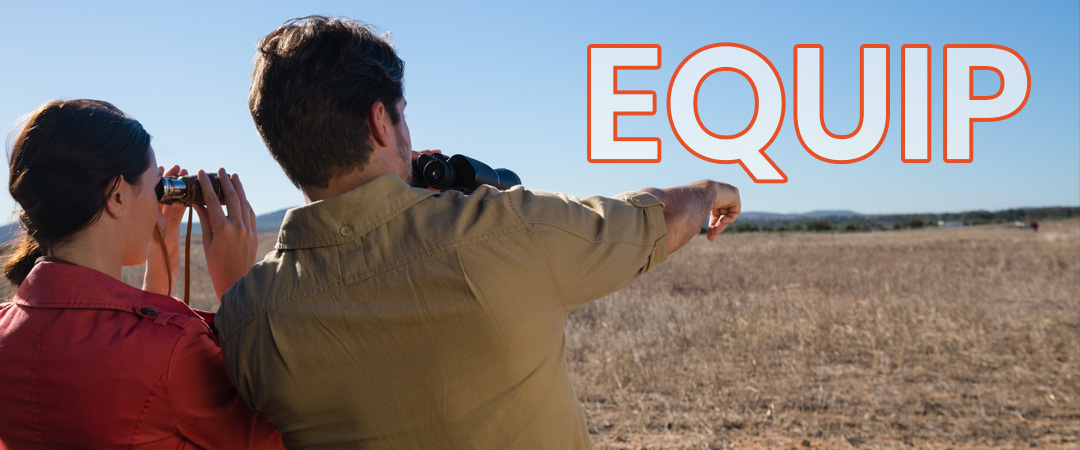
HOW FAR IS TOO FAR?
THE GOSPEL INCARNATED IN CONTEXT
By David Kerrigan
David is a Baptist Minister and former General Director of BMS World Mission (UK Baptist Missionary Society, 2009-2017). David has been involved in cross-cultural mission work in many countries for 35 years and now, in retirement, remains involved in several important initiatives. This article is curated from BMS World Mission’s Mission Catalyst, Issue 3 2013.
Going too far in either ‘direction’ on the spectrum of contextualisation risks moving away from the truth of the gospel.
The challenge of contextualisation of the gospel is not to be feared. In fact, it is one of the greatest gifts we have. The Christian faith demands to be contextualised, and is made capable of such contextualisation because of the dynamic at work at its heart.
From the outset, God contextualised his approach to humankind, through language and imagery, personal encounter and revelation.
The incarnation of Jesus is, of course, the epitome of contextualisation. Jesus enters our world, on our terms, alongside us in all things. Well, not exactly all things—for his sinlessness reminds us that contextualisation is not the same as identification: the presence of God will always challenge people and cultures to recognise their need to be transformed into the likeness of God and his Kingdom.
The goal of contextualisation, therefore, is to enable Jesus to be authentically experienced in every human situation, as far as it is possible. That human situation comprises the worldview of the person or community. So, for example, Jesus was embraced as a rabbi by many of the Jewish people, and amongst them were those who suspected he was the long-promised Messiah. Their Jewish worldview meant they were open to such a person entering their world.
Women experienced Jesus as distinctly counter-cultural, and they welcomed that. Why wouldn’t they! And so did all manner of outcasts and sinners. But amongst those for whom that culture had been favourable, many felt threatened.
Rich people walked away downcast because they did not accept the Lordship of Christ. Other rich people, amongst them women, supported the ministry of Jesus. The issues isn’t riches, it’s the love of riches.
Outwardly ‘sinless’ people were labelled as hypocrites, yet outwardly sinful people were contrite and were restored.
Worldview, or context, is everything. Announcing Jesus as the Messiah to a bunch of Harley-Davidson bikers is likely to have little impact. A prisoner might need to hear the gospel as that which forgives and gives a second chance. A trafficked woman can hear of the God who welcomed women and restored their dignity. Nations that are powerful need to hear of the dangers of hubris, while the downtrodden will hear good news about the God of small things.
So, in one sense there is no such thing as a simple gospel. The gospel is a fluid thing: subversive, changing shape, finding its way into cracks and crevices and, from there, challenging and embracing in sometimes equal measure. The gospel will embrace aspects of culture not embodied in the gospel imported from elsewhere, but it will also challenge that same culture where the Lordship of Christ is ignored or undervalued.
The messenger, therefore, needs to recognise that the baggage they carry is more than the simple gospel. Their ‘shaped-by-my-culture’ understanding of the gospel can, if we’re not careful, deny new insights that might emerge from other cultures that we have not yet seen. A Western worldview doesn’t allow much room for miracles—and that baggage is easily imparted to others. Conversely, those who read the Bible afresh, and from a culture where the reality of the spirit world is readily embraced, may well conclude that God answers our prayers, and often with miracles, and so pray for healing as routine.
COLONIAL MISSIONS & TELEVANGELISTS: LOOKING BACK
There was much to celebrate in the missionary movement of the 18th and 19th centuries. We can see that there were real attempts at contextualisation, long before the concept was ever conceived. Reducing local languages to script and translating the Bible were major steps in allowing the gospel to take root in new soil. But there were also blind spots. African converts dressed as quintessential Englishmen and women. Churches were built with pulpits, pews and spires that betray a cultural blindness alongside a desire to share the gospel.
These are not just problems of yesteryear. We export our theology as neatly packaged commodities today in videos, books and study guides through powerful global Christian publishing houses but if we’re not careful, these become vehicles for stunting the development of truly indigenous theology. Even worse, the ubiquitous televangelists on satellite channels and online preachers broadcasting to the world, that owe more to showbiz and money-making than the life of Jesus, too often register zero on the contextualisation meter!
INTERPRETING SCRIPTURE: THE CHALLENGE OF HERMENEUTICS
The debate about contextualisation is not primarily about its intrinsic value. Most people ‘get it’. But the underlying tension is what then governs how we interpret the gospel. This is the task of hermeneutics (the art of interpretation) and can be expressed in the question ‘how is the meaning of Scripture to be discerned?’ ‘How much is it governed by the interpretation of God’s revelation, how much is it governed by the human condition?’ For example, in answer to the question, ‘how am I to understand the parable of the lost son?’, am I to depend on what others tell me is the divine revelation contained in the text? Or to what extent is its interpretation moulded by my life, my circumstances, my culture?
This, then, is the question that might help us understand the right place to aim for in terms of contextualising the gospel. Hermeneutics recognises two parts to the task of interpretation. These are meaning and significance. By meaning, obviously, we refer to what the author meant. By significance, we refer to the degree to which a given culture at a given time can access the gospel as a voice that is relevant to its experience.[1]
SO, HOW FAR IS TOO FAR?
By now you’ll have seen, hopefully, that the ‘how far is too far?’ question cuts both ways. Too far towards either end of the spectrum is too far. So how are we to gauge the right degree of contextualisation?
Firstly, we are too far away from a contextualised gospel if we fail to engage with the particularities of the human condition in any given culture. The Bible certainly speaks a universal word to all of humanity that entails God’s creation, humanity’s fallenness, God’s salvation plan, the cross and resurrection and eschatological hope.
But this universality does not mean that the gospel is uni-dimensional, or simple. Some will argue that the gospel calls for repentance and faith as means of salvation, but is not designed to deal with issues of poverty and justice. Many evangelicals held this view until the 1970s, and it was John Stott’s major contribution to evangelical theology that he reminded us of the need to care for the poor, the widow and the outcast.
To adopt a ‘Scripture is simple’ stance in terms of our understanding of human sexuality, or creation-science, or a hundred other disciplines is to say that the insights of science and the humanities have little or nothing to add to our understanding of the Bible.
Conversely, we are too far away from a contextualised gospel, in the opposite direction, if we focus so exclusively on contextualising Scripture that we forget the message of the cross. Yes, the human condition is an offence to God and in many respects a product of our making. And yes, it is vital that our faith results in us working for the overturning of injustice and the betterment of human life. But the Bible can never be reduced to a political manifesto. At the heart of the gospel is a spiritual diagnosis that reckons with the seriousness of sin, and the efficacy of the cross. If our focus on culture neglects engagement with the sin that separates us from God, we are just one more political party.
Besides, we will have disempowered the gospel in its ability not just to embrace culture but also to challenge it.
We have a contextual gospel, but it is still The Gospel – good news for a broken world.
—————
ENDNOTES:
- See Evangelical Dictionary of World Missions, Ed A Scott Moreau pp430-432 for an extended treatment of this subject.

RELATIVISM & SYNCRETISM
UNHELPFUL OBSESSIONS OF THE WESTERN CHURCH
By ‘Nour Armagan’
Nour Armagan (a pseudonym) is a theologian from the Middle East with a Muslim background. This article is curated from BMS World Mission’s Mission Catalyst, Issue 3 2013.
Hypocrisy, more than syncretism, might be the key danger in relating to the emerging church.
I believe in a global theological accountability. We are all shaped by our contexts, personal and communal concerns, anxieties, questions and capabilities. This shapes how we read the Bible, how we develop theologies, what tools of interpretation we utilise, which metaphors we use and what topics we cover.
This is not relativism, not a denial of universal and absolute truths, but the humility of knowing that God and God’s truths are often beyond our human-made creations and perceptions. That is why we need the experiences of the global and historical Church, with all of its shades and colours, to be with us if we are to advance his Kingdom and ignore pitfalls of our own bubbles. Church history is full of episodes where a particular country, and the Church in it, gets carried away with its own social and political constructs, all along thinking that ‘God wills it’.
Thus, as I try to develop a theology for today’s Middle East, I need Christians from Latin America, East Asia, Oceania and North America as well as Europe to keep me accountable; to challenge me where I need to be self-critical and to learn from my experiences. Simply put, without such a theological accountability, we are vulnerable to confusing our own constructs, culture, and nationalism with the truths of God.
This, however, is not happening and, where particularly Western Evangelical Christians are concerned, is sadly far from this ideal.
Allow me to give two symptomatic examples of this. The first is the sloppy phrase of ‘contextual theology’ used for the writings of non-Western Christians. Works of African, Asian, Latin American and Middle Eastern theologians are designated as ‘contextual’ whereas works of British or American theologians are marked as ‘theology’, as if they were not also products of their context, as if they do theology outside of parameters of a language, culture, and preferred methodologies of interpretation and application. This grants Western theology a supra-contextual status and relegates non-Western theology to an inferior, semi-theology status. Obviously, such a classification is not empirical, but merely a sad reflection of how Western Christians see themselves in relation to the rest of the world.
Second is the never-ending warning of ‘syncretism’ that comes up whenever we, the non-Western theologians, speak of our desperate need to develop theologies that engage with our issues and communicate God’s eternal truth within and for our reality. The worried Western Christians almost always raise the grave concern that somehow we, the non-Western Christians, are either not mentally capable of (or, worse, not willing to attempt) understanding or sticking to Biblical truths (or ‘truths’ as the West has interpreted them). This not only insults the non-Western Church, most of which is paying a heavy price for following Christ as persecution and other conflicts increase, but also the Spirit of God who promised to enlighten and guide us as we do our best to follow the Lord.
It is ironic, though, that the same people who sternly warn us would never think of going to a Bible college in the US or UK and asking them to stop writing new books and instead address challenges faced by Christians the world over because of syncretism from the West.
From where we in the Middle East see the world, we often find Western Christian books and worship songs to be thoroughly culturally syncretistic, confusing their ‘way of life’ and national perspectives about the world and Church with the biblical truths of the gospel.
We desperately need one another on this journey, but only when its starting and end point is humility.
BY CHRIS BINDER
Chris Binder is National Director for Interserve Great Britain and Ireland. He and his wife, Rachel, are partners with Interserve, having previously served in Central Asia and South-East Asia for 16 years. Chris has an MBA in international economic development from Eastern University. This article is curated from the Lausanne Movement’s blog, 11 September, 2023.
My first experience of overseas Christian ministry was a 6-month trip to South Asia as part of a team of young people, sent out from the UK. The understanding of what we were doing was shaped around Matthew 28:19. Our focus was going and making disciples. We followed, both geographically and in our understanding of mission, in the footsteps of William Carey, the father of the modern missions movement. It was a deeply formative time for me. I discovered that I loved being in multicultural environments. On the other hand, I picked up some ideas about mission and cross-cultural ministry that it took me many years to realise should have been a lot more nuanced than I had thought.
Carey’s era saw the establishment of a number of missions agencies, many of which continue to exist today. My own agency, now known as Interserve, started in the UK in the mid-19th century and focused on reaching out to women in the Asian subcontinent for its first 100 years. These societies came into being at a time when many European countries were expanding their influence around the world. Missiologist David Bosch noted that:
There was something businesslike, something distinctly modern, about the launching of the new societies. . . Carey took his analogy neither from Scripture nor from theological tradition, but from the contemporary commercial world—the organisation of an overseas trading company. . . Carey proposed that, in similar fashion, a company of serious Christians might be formed with the objective of evangelising distant peoples. It should be an “instrumental” society, that is, a society established with a clearly defined purpose along explicitly formulated lines. [1]
Today, many missions organisations continue to be made up of ‘serious Christians’ centred around a clearly defined purpose. Our organisations have changed over time, of course, but we can still readily recognise much of what Bosch describes from those early days of this ‘modern missions movement’ in our organisations’ cultures and ways of working. Carey’s influence lives on.
A CHANGING WORLD
When Carey first went to India in 1793, 98 percent of Protestants lived in the Western world. [2] Today, in contrast, following the growth of the church around the world, two-thirds of Christians live outside the Western world. While there remain many communities with only a small or no known communities of followers of Jesus, the way in which the global church has grown means that we must re-evaluate how we engage in God’s mission together.
A CHALLENGING WORLD
Newer voices in the global church are bringing fresh perspectives and challenges to our understanding of and participation in God’s mission. We should weigh carefully what they say. Like the apostle Paul, our goal should be to ‘put no stumbling-block in anyone’s path, so that our ministry will not be discredited’ (2 Cor 6:3). Fresh perspectives provide an opportunity to explore if we have created stumbling blocks that we are not aware of.
What are these stumbling blocks? They include a sense of superiority as a result of European enlightenment thinking, [3] the impact of colonialism, [4] and a danger that we become so focused on achieving our purpose that we unintentionally devalue, silence, and objectify the recipients of our ministry efforts. While a significant amount has been written in the last five years, this critique is not new. Nearly 20 years earlier, academic David Smith came to a similar conclusion. ‘While (God’s) mission is a biblical universal, the modern missionary movement was a specific, culturally conditioned initiative which, while amazingly successful in its time, is likely to become increasingly dysfunctional if the attempt is made to preserve it in the new context we have described.’ [5]
So, an increasing number of practitioners and scholars argue that the current way we practice missions and organise ourselves as missions societies is heavily influenced by the worldviews prevalent in Europe and North America through the 19th and much of the 20th centuries. Our understanding and practice of global missions is not global at all but bounded by a particular worldview and historical context. In contrast, much of the growth of the church in the 21st century is happening outside of Western countries. Those who want to engage with our agencies from these newer non-western countries find themselves needing to adapt to the dominant (largely Western) worldviews that continue to shape mission thinking, even as they question how helpful they are in the contexts where ministry is taking place. The key challenge, as David Smith puts it, is how to liberate mission from the modern missionary movement.
RESPONDING TO CHALLENGES
Interserve GBI (Great Britain & Ireland) is part of the Interserve International Fellowship, with teams around the world, focused on making Christ known among the peoples of Asia and the Arab World. Historically, most of our workers served as part of overseas teams. Now, around two-thirds work with Asian and Arab World communities here in the UK. As the Church around the world grows and as the Church within the UK becomes more culturally and ethnically diverse, we need to address the challenges of this new global landscape.
Challenge: Our ‘international’ approach to missions is, essentially, a Western approach.
Response: We need to be open to new ways of organizing ourselves and fulfilling our calling. The increasing number of missions leaders from more community-minded cultures has helped to highlight a more community-based approach to mission. Interserve’s International Director, Bijoy Koshy (from India) contends, ‘Looking at the world through the lens of community changes the focus of our activity, putting narrow, goal-driven actions within a wider framework that will truly reveal to the world who Jesus is.’ [6] A community framework counters an overemphasis on task with a value on relationship without in any way decreasing (and possibly increasing) the missional impact.
It is worth noting that the concept of missions in community resonates in the UK as well. We carried out a survey of 2,700 Christians in the UK in 2022. 74% agreed that cross-cultural missions should involve bearing witness to God as a community of God’s people. [7] We may need to change the way we talk about what we do and the language we use but our research suggests that the Christian community, here in the UK at least, is receptive to thinking about missions in more community-oriented terms.
Challenge: The ‘modern missions paradigm’ can create obstacles to the Gospel.
Response: The best way for people to learn about their cultural blind spots is to work alongside and build up friendship and trust with others who do not have the same blind spots. International missions agencies are well placed to bring together workers from a range of different countries and cultures into one team. With God’s grace, communities of Christ followers that cross social, cultural, and ethnic boundaries will grow in their own discipleship and be better equipped to make disciples among those with whom they interact. Working in culturally diverse groups is a way to better recognise the limits of our culturally bounded approaches.
As the Church around the world grows and as the Church within the UK becomes increasingly culturally and ethnically diverse, we are trying to see that diversity reflected in our own Interserve team. We are starting to learn how we might serve and work alongside black majority and Asian churches in the UK. We are also actively working to recruit people from other parts of the world to join our national team. We need to learn from them!
Challenge: Much of the growth of Christianity, and momentum for missions, is outside of the West.
Response: We recognise that, as Westerners, it is not our place to be in charge anymore. We need to create the space for others to shape the conversations. At the same time, as Westerners, we should not disengage. Paul’s analogy of the body of Christ as one body with many members is helpful. No part of the global Church can say to another, ‘I don’t need you’. Those from the traditional missions sending nations of the West cannot say to other parts of the global Church, ‘we don’t need you’. When we allow the relationships between different parts of the body to be skewed by who has the most money, or who holds the most power, ‘we don’t need you’ is the message that often comes across to those who are seen as having less. At the same time, those from the parts of the world where the Church is growing fastest and where passion for missions is strong cannot say to the nations where the Church is becoming weaker, ‘we don’t need you’. In both cases the result is less than what God intends. Our challenge as Westerners is whether we are ready to cede power to others.
CONCLUSION
We are privileged to live in a time when God is building the Church around the world in rapid fashion. Thanks to the work of the gospel, we get to be a part of his amazing, colourful, multicultural Kingdom. The call to missions remains and I believe missions agencies can continue to play a helpful role. However, the opportunities and challenges of the new global landscape have far-reaching implications for all of us. Change is never easy but, on the other hand, as the world around us changes, is not-changing really an option?
—————
ENDNOTES:
- Bosch, D. J. (1991). Transforming Mission. Maryknoll: Orbis Books.
- Eido Research. (2022). Interserve Assessment of Church Attitudes to Mission.
- Koshy, B. (2021, March 1). Innovation in Missions: A Global Perspective. Retrieved from Missio Nexus: https://missio-2021-onmission.s3.amazonaws.com/Transcripts/Bijoy+Koshy+Final.pdf.
- Kwiyani, H. (2020a, October). Mission after George Floyd: on white supremacy, colonialism and world Christianity.Retrieved from Church Mission Society: Anvil Journal of Theology and Mission Volume 36 Issue 3: https://churchmissionsociety.org/anvil/mission-after-george-floyd-on-white-supremacy-colonialism-and-world-christianity-harvey-kwiyani-anvil-vol-36-issue-3/
- Nascimento, A. (2021). Evangelization or Colonization? Oxford: Regnum Books International.
- Smith, D. (2003). Mission after Christendom. London: Darton, Longman and Todd Ltd.
- Tenant, T. C. (2007). Theology in the Context of World Christianity. Grand Rapids: Zondervan.
BY DR CHRISTINA BAIRD
By Dr Christina Baird PhD, Kindness Consultant. Christina is a psychologist, coach, and professional supervisor helping people to critically reflect, explore the future and respond creatively through one-on-one sessions and group reflective learning opportunities. Christina is working for a world where everyone feels free to show up as themselves, owning and expressing their strengths, quirks and passions. This article is curated from Christina’s newsletter, 4 Dec. 2023.
Are you feeling like a duck—paddling frantically to stay afloat? Most of us have entered that chaotic part of the year, with evenings filled with social events, increased demand for services and an increased workload to prepare for the holiday break. Even traffic seems worse, extending our travel time, and family relationships may be strained as we negotiate holiday activities. As we try to add extra to our schedules we realise how little margin there was to begin with. With all the extras, it is easy to find ourselves experiencing stress and overwhelm.
This stress flows outward, impacting not just us but those around us. Have you noticed how many people are impatient or unpleasant to the people in service roles at this time of year? As a kind leader (or a leader in kindness) you don’t want to be a duck. Just as the frantic paddling of a duck stirs up pond mud, even if they are calm on the exterior, so your underlying stress and overwhelm can negatively impact others. We need to go one step further and cultivate not just an outer calm but an inner calm, a calm that we can spread outwards to those we interact with.
Authentic, steady, calm reliability creates a kind and safe atmosphere, supporting others to do their best work, despite external pressures. It’s more like being an air conditioning unit than a duck. An air conditioning unit (when it works well) exudes an atmosphere that allows everyone to be comfortable and focused. To exude a calm atmosphere, cultivate an inner sense of calm—start with self-care and grow your resilience to stress. It is hard work, it requires intentional practice, but the benefits make it worthwhile.
To cultivate your inner calm, you may like to consider these steps:
- Understand why you want to do this, by considering the following questions:
How do I want to show up at work, at home and in the world?
What sort of person would I like others to describe me as, especially at this time of year?
Which of my values do I most want to embody? (If you haven’t figured out your values you can do a values assessment here). - Identify and be disciplined in doing a practice that decreases your reactivity, this could be mindfulness, meditation, prayer, singing, running, gardening—whatever works for you to increase your response time and sense of calm.
- Ensure that you are completing your stress cycle. This involves signalling to your mind and body that the stress is over, and you are now safe enough to relax. This is important to prevent you from staying constantly in a highly stressed state. More information on the stress cycle is available here
- Prioritise regularly, returning to your values, purpose, and goals and figuring out what is genuinely important personally and for your organisation or team. This helps prevent you from being sent off track by what is important to others.
- Say no and ask for Help. Remind yourself daily that you don’t have to do it all, and you don’t have to do it all alone. Prioritising well and frequently helps you to sustain your yeses wholeheartedly and with lasting enthusiasm. Consider simplifying and lowering your standards and ideals in ways that reduce extra demands (it’s ok, to have cheese on toast for dinner now and again!).
I hope you are able to reduce the stress and increase the joy in the lead up to the holidays.

PRAYERLINKS
PRAYER FUEL FOR MISSIONS
Praise God that after being damaged in the January storms, work on Brian and Vicky’s new roof was completed in October thanks to the generous support of donors. Pray for Darryl, a student of the Torah Bible Correspondence Course who became a new believer in the Messiah. He is now married with a family and living in Australia. Brian and Vicky hope to receive a visit from him soon. Please also pray for Vicky as she is now completely blind, but still very active in the work, especially in the area of phone counselling.
Please continue to pray for two families currently involved in partnership development and raising prayer and financial support to go to Romania and Austria next year. Pray that their support will come in time for them to leave as planned. We are grateful for the new contacts and enquirers that God brings to us—please pray for wisdom as we seek to help them discern God’s call and leading in their lives.
Praise God for Jay’s successful international engagements and the new relationships developed along the way in the cause of God’s mission. Give thanks too for encouraging Council and AGM meetings. Pray for Jay & Pauline as they break for the Christmas/New Year period from 18 December-5 January. Pray for a refreshing rest with family and a re-energizing after a busy past year.
December is a busy month for sharing the good news in most countries where our workers are. Pray for wisdom in planning events that will attract newcomers, and stamina in the preparations as well as for the actual events. Our office staff take a welcome break over the Christmas and New Year period—pray for refreshment for them and for good times with family. Some who have lost family members during the year will grieve as they face changed dynamics for their Christmas get-togethers. Pray for them at this time.
We are currently collaborating together with other agencies in a new venture. As a group we are seeking to serve alongside New Zealand churches in cross-cultural ministry to encourage migrants into flourishing and contributing communities. Pray for the Lord’s leading as we work together, as other agencies are invited to join the collaboration, for good church connections and for Christ to be made known among the migrant people of Aotearoa New Zealand.

SPOTLIGHTS
LATEST NOTICES & EVENTS
KFC WITH OMF
Come along on 11 December to find out why! Oh, and yes, remember to buy your KFC so that we can share together—even if you are online! The Japan Prayer Network is for those who are exploring or have a call to serve the Japanese. Join us as we learn about the nation and how to pray for the people and for the OMF team working there.
Date: Monday 11 December, 2023
Time: 7:30-9:00pm
Location: Online & In-Person
591 Dominion Road, Balmoral
AUCKLAND
CLICK HERE for more information.
OPPORTUNITIES IN NEPAL
The International Nepal Fellowship has been granted about 65 official work visas. This is a wonderful opportunity for people to use professional skills for integral mission. Voluntary positions available include: Health Services/Hospital Development, HR/Organizational Development, Fund Raising & Communications, Community Programme Development & Project Management, plus many more roles.
CLICK HERE to download the full vacancy specification sheets.
For more information contact Sean Marston of INF New Zealand at director@nz.inf.org.
CARE CENTRE EXECUTIVE DIRECTOR VACANCY
The Red Sea Counselling and Member Care Centre is seeking a candidate with a mature faith and cross-cultural experience for the role of Executive Director to lead this emerging and needed ministry, which launched in Manuda Cairns early 2023. The Executive Director would need to be a hands-on pioneer who can strategically and practically shape and implement the future development of this centre. It is important that they are able to share the vision of this counselling and member care ministry, while also coordinating people, resources and systems.
CLICK HERE to download the full role description. Applications close 31 January 2024.
For more information contact Board Chair, Karen Newnham at knewnham54@gmail.com.
SERVE WITH EASTWEST
Eastwest College of Intercultural Studies is a faith-based ministry dedicated to serve the Lord in missions by training and equipping learners for Christian ministry and missions service cross-culturally. Do you or someone you know feel called to be involved in a support ministry for missions? Eastwest currently has an urgent need for volunteers. For more info about serving with Eastwest visit the opportunities website: https://eastwest.ac.nz/serve/.
2024 NZ TCK CAMP
The ever popular Kiwi TCK Camp will be held on Eastwest College’s campus once again next summer! Online registration for the camp will open sometime this month.
Dates: 16-20 Jan, 2024.
Location:
Eastwest College
21 College Drive, RD 1
Taupiri 3791
For more information contact Joyce Campbell at: martin.joyce.campbell@gmail.com
MEMBER CARE DISCUSSIONS
Missions Interlink Australia have launched a new quarterly member care professional development ministry: Member Care Discussions. This ministry will focus on interactive peer group discussions, specifically centered around member care case studies. At the next meeting, you’ll have a chance to connect with one another before diving into a case study discussion led by Roslyn Nicolle (Wycliffe Aus.). In the future, we’ll continue to provide opportunities for different participants to bring their own case studies and lead the interactive discussions. This ministry is open to all who are working in the field of member care. We’re confident that it will be a valuable and enriching experience for everyone involved. Please feel free to share this opportunity with your peers and colleagues!
SAVE THE DATE: Thursday 22 February 2024
4:30 pm – 6:00 pm NZ Time
On ZOOM
For more information and to be added to the notifications list contact Christine Bird: Cdbird1@gmail.com.
2024 REACH OUT MISSIONS CONFERENCE
The theme of Reach Out 2024 is “Consider the Cost”, with passionate communicator Ken Katayama (Japanese/Brazilian living in the USA). Ken is the President & CEO of Crossover Global and a Deputy Leader in the WEA’s Mission Commission. Crossover Global is a missions agency that seeks to provide gospel access to unreached peoples of the world by planting multiplying churches.
Date: Saturday 7 September 2024
Time: 8:30am-6:00pm
Location:
Pacific Hills Christian School
9-15 Quarry Rd, Dural
SYDNEY
Cost: $99 (Adults)
Registration opens in February 2024. For more information contact: teamleader@reachoutmissions.com.au.
SOUTH PACIFIC MEMBER CARE NETWORK 2024 CONFERENCE
The SPMC Network conference provides an opportunity for professional development and networking with others, sharing your passion to care for those working in cross cultural situations. The speaker is Tony Horsfall from the UK. Tony has been involved in local church leadership for over 30 years. He regularly travels to Singapore and Malaysia to share the message of grace and intimacy with missionaries and church leaders.
Location:
Pallotti college
80 McNamaras Rd
Westburn, VIC 3799
AUSTRALIA
Dates:
From: 29 April 2024 from 2pm
To: 3 May 2024 after lunch.
For more information including pricing click here to visit the MI Australia event page.
GLOBAL MEMBER CARE NETWORK 2024 CONFERENCE
The Global Member Care Network is working on their vision to bring the Global Member Care world together again for their 4th Global Member Care Conference, this time in Africa. The significance of this location is to serve African mission movements, while learning from their unique strength in missions and member care. Past experiences have shown that surprising connections and transformative insights happen individually, organizationally, and nationally when member care practitioners gather from various national missions movements all over the world.
Location: Nairobi, Kenya
Dates: 28 Oct – 1 Nov 2024
For more information visit: https://globalmembercare.com/conference-2024/
Waiting for the King
Every advent blessing to you and those you love!
ABOUT US
Executive Officer Jay Mātenga
Administrator Pauline Wood
Executive Team
Joseph Bateson (Chair), Glenn Carter (Vice Chair), Jon Horne (Treasurer), Andrew Marriott (Secretary), Rebecca De Jong.
MI Council
Arotahi (formerly NZBMS), Asian Outreach, Beacon Partnerships (formerly LeaDev-Langham), Church Mobilization Trust, Eastwest College, European Christian Mission, GC3, International Teams, Interserve, Laidlaw College, MotiVate, NZCMS, OMF, Pioneers, SIM, WEC, World Vision, with individual member: Jon Horne.
Our Purpose
We facilitate collaboration towards participation in mission from and within Aotearoa New Zealand. We nurture the missions community in Aotearoa New Zealand to connect, converse, and conduct mission with the aim of working together: on mission.
Connecting the missions community
from and within Aotearoa NZ
for God’s glory everywhere, always.
MI SERVICES include (but are not limited to):
MI BULLETIN MI Online Member Directory
MI ManaakiApp (for retail discounts & coupons)
MI Research and Resources
MI Conferences, Clusters & Collaborations:
Admin, Mission Leaders, Church Mission, Diaspora,
Member Care, Mission Training, Mobilisation, & more.
HOW TO CONTACT US
PO Box 64 379
Botany 2163
Auckland, New Zealand
+64 9 320 4408
CLICK HERE to drop us a note.
ADVERTISING
The MI BULLETIN is distributed by email every month to around 1000 missions interested people.
Commercial Rates & Sponsorship
Only charity rates are listed here. Commercial ad rates and sponsor benefits are set by negotiation.
Spotlight Notices
Text only (up to 50 words with one web link).
MI members — FREE
Non members — $40 per spotlight
BULLETIN Full Colour Ad Space
Artwork must be supplied (.jpg or .pdf, 300dpi)
Deadline: Last Friday of the month before issue.
COST: MI MEMBERS
First Month
A4 Portrait—$150
A5 Landscape—$110
Successive Months
A4 Portrait—$100
A5 Landscape—$80
Non-members, double the member rate.






